- ECOWAS approved the exit of Mali, Niger and Burkina Faso from the regional bloc with effect from January, 2025
- The request for exit from the regional organization followed sanctions by member states as a result of coup d’etat in the Sahel member states
- Analysts, experts express concerns over security, economic consequences both on Sahel region and ECOWAS
On December 15, 2024, the Economic Community of West African States, ECOWAS approved the proposed exit Mali, Burkina Faso and Niger from the regional bloc.
The Economic Community of West African States, ECOWAS has approved the withdrawal of Niger, Mali and Burkina Faso as member states from January 29, 2025.
It also declared a six-month transition period lasting until July 2025.
The President of the ECOWAS Commission, Dr Omar Touray, announced this at the close of the 66th Ordinary Session of the ECOWAS Authority of Heads of State and Government.
According to Touray, “The Authority takes note of the request by Burkina Faso, Mali and Niger to withdraw from ECOWAS.
“In accordance with article 91 of the ECOWAS treaty, the three countries will cease to be members of ECOWAS from January 29, 2025.”
However, the bloc says its doors remain open during the seven-month transitional period from January 29 to July 29.
WITHIN NIGERIA findings showed that in January 2024, the three sahel countries announced their decision to withdraw from ECOWAS.
The three Sahel countries accused the regional bloc of deviating from its foundational ideals and succumbing to external influences, particularly criticising the imposition of sanctions aimed at reversing their respective coups.
This decision followed a series of military takeovers: Mali in 2020 and 2021, Burkina Faso in 2022, and Niger in 2023, each leading to suspensions from ECOWAS and strained relations with the organisation.
Widely seen as West Africa’s top political and regional authority, the 15-nation bloc of ECOWAS – formed in 1975 to “promote economic integration” in member states – has struggled in recent years to reverse rampant coups in the region where citizens have complained of not benefitting from rich natural resources.
Military leaderships in the three nations have vowed to tackle the rise of violent armed groups in their countries and have joined forces in the so-called “Alliance of Sahel States”.
The three countries have cut military ties with France, the former colonial power. France once had a strong presence across the Sahel, but announced the withdrawal of its troops from the three countries after the coups.
The French military withdrawal and economic sanctions on already fragile economies have heightened concern that armed groups could spread southwards towards the relatively stable coastal countries of Ghana, Togo, Benin and Ivory Coast.
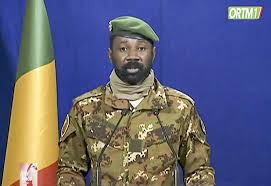
In 2023, West Africa recorded more than 1,800 attacks in the first six months , resulting in nearly 4,600 deaths and creating dire humanitarian consequences. According to an ECOWAS top regional official, this was just “a snippet of the horrendous impact of insecurity”.
WITHIN NIGERIA gathered that this is the first time any country has left ECOWAS since it was established in 1975 to improve economic and political integration in West Africa.
The three departing countries were founding members so this is a huge blow to what was Africa’s most developed trade grouping.
Citizens of all ECOWAS countries currently have the right to live and work in all member states, while goods can circulate freely.
ECOWAS has not yet said whether it will impose restrictions on people and goods coming from the three departing states, who have formed a new grouping, the Alliance of Sahel States (AES, from its French acronym).
The ECOWAS Commission in Abuja has been mandated to work out such issues, and how the two blocs should work together in future.
Over the weekend, the AES announced visa-free travel and residency rights for ECOWAS citizens.
Their leaders said this decision had been taken in the spirit of friendship, and to strengthen centuries-old ties among African people.
Analysis of the exit
WITHIN NIGERIA findings showed that over the years, progress towards regional integration has been slow on the continent. Political elites bear a great part of the blame for this. In a patrimonial system like that of African, nay West Africa that relies on interpersonal relations, regional integration goes against the informal arrangements that politicians have established with wealthy traders.
As a result, there is a mismatch between regionalism as it should be on paper and regionalization as it is experienced on a daily basis on the West Africa sub-region.
Political elites have also encouraged the multiplication and overlap between regional organizations, because this is a source of continental and international legitimacy, well-paid jobs, and diplomatic relations. The result is that most African economies are highly integrated functionally, through informal trade, but poorly integrated institutionally.
The fact that regional bodies have been instrumentalized by political elites doesn’t mean that Africa needs less integration. It needs better integration.
To this end, since 1975, ECOWAS and its sister organizations like Southern African Development Community, SADEC, have implemented numerous policies that aim at improving how African countries trade with each other, and how they are connected to the world.
For example, findings by our reporter showed that since the establishment of ECOWAS in 1975, it has become the most important organization supporting women entrepreneurs in West Africa, thanks to regional initiatives such as Sahel Women’s Empowerment and Demographic Dividend, SWEDD that facilitate women’s access to education and health services
For this and other reasons, it remains a puzzle why three landlocked countries, among the poorest in the world, would leave an organization established to foster free movements of people, goods and capital across the region.
Economic Community of West African States, ECOWAS may not be practically effective both in decision making and implementation of some policies especially as far as poor countries is concerned but one fact remains undisputable in the region. West Africa is one of the most expensive regions to do business in the world, due to poor road conditions, roadblocks and border delays. Burkina, Mali and Niger’s withdrawal from ECOWAS can only make things worse for the majority of the Sahelian population who rely heavily on other countries like Nigeria, for trans-border trade.
Security implications of the exit
Of grave concern is the escalation of regional violence in the Sahel. Mali, Niger, and Burkina Faso are pivotal in combating Islamist extremism, with coordinated efforts at risk due to the withdrawal of French and UN troops. The departure from ECOWAS exacerbates security risks, threatening stability not only in the Sahel but also across neighboring nations. Notably, data has shown an increase in violence and attacks in the three countries since the Military Junta took power, which raises questions about their ability to deal with the existing challenges.
Despite forming the AES, Mali, Burkina Faso, and Niger face daunting challenges. The AES’s departure from ECOWAS may further isolate the alliance, impeding access to vital markets and exacerbating economic woes. Moreover, the AES’s credibility remains uncertain, with the international community closely monitoring its ability to foster regional cooperation and address pressing security concerns.
While the departure of Mali, Burkina Faso, and Niger poses challenges, ECOWAS remains resilient. With the departure of three of its poorest members, ECOWAS is poised to maintain economic cohesion and explore avenues for deeper integration among remaining states. The impact of the AES’s departure on ECOWAS’s overall gross domestic product is minimal, underscoring the bloc’s stability and adaptability in the face of regional dynamics. Notwithstanding, the move may bring an end to decades of brotherhood that has existed in the regional bloc.
The withdrawal of Mali, Burkina Faso, and Niger from ECOWAS underscores the complex interplay of economic, security, and political factors shaping West Africa’s landscape. As the Sahel states navigate uncertain terrain, collaboration and strategic planning are essential in mitigating challenges and fostering sustainable development. The broader West African region must remain vigilant, recognizing the interconnectedness of nations and the imperative of collective action in overcoming shared obstacles.
Over the last decade, the region has been shaken by extremist uprisings and military coups. Three Sahelian nations, Mali, Niger and Burkina Faso, are now ruled by military leaders who have taken power by force, on the pledge of providing more security to citizens.
But the security situation in Sahel has worsened since the juntas took power, analysts say, with a record number of attacks and a record number of civilians killed both by Islamic fighters and government forces. Over the first six months of this year,2024, over 4,000 civilians were killed by the violence, according to the Armed Conflict Location and Event Data Project, a 25% increase compared to the previous 6 months.
Extremist groups operating in Sahel, and what they want
WITHIN NIGERIA findings showed that the main two groups operating in the region are the al-Qaida-linked militant group Jama’at Nusrat al-Islam wal-Muslimin (JNIM), and the Islamic State in the Sahel. Over the last year, the JNIM has strengthened its presence in Mali and Burkina Faso, by becoming a more coherent political grouping.
“The local populations support (JNIM) more than IS-affiliated groups,” said analyst Shaantanu Shankar of the Economist Intelligence Unit. “They have integrated local rebel groups, which have close community ties.”
Unlike JNIM, Islamic State in the Sahel is a loose coalition of anti-government forces that is much less entrenched politically, he said. They are much more dominant in the Lake Chad region.
These groups attack, terrorize and kill local populations and their actions likely amount to war crimes, according to rights organizations.
In addition, there is also a number of local militia on the ground, which are not affiliated with IS or al-Qaida, as violence has exploded between rival ethnicities and local self-defense groups resulting in a self-perpetuating spiral of violence.
Why the extremists in Sahel are getting stronger
The military juntas in three countries have capitalized on popular discontent with the former democratically elected governments, which they saw as corrupt and propped up by France.
After coming into power, all three juntas left the Economic Community of West African States, the nearly 50-year-old regional bloc known as ECOWAS, and created their own security partnership, the Alliance of Sahel States, in September 2023. They have cut ties with the traditional Western allies, ousting French and American military forces, and instead sought new security ties with Russia.
“There is a huge security vacuum after the withdrawal of the French and American military” from the region, said Shankar, which cannot be filled by Russia. Troops from the Wagner Group, the Russian private military company, present in the region are being financed by the junta governments, Shankar added, with fewer financial resources.
But experts say the other factor fueling instability is the worsening economic situation, as well as the lack of job opportunities, which contribute to the rising popularity of extremist groups. In all three countries, Islamic extremists have been recruiting among groups marginalized and neglected by the central governments.
“There are very few opportunities for people in rural Sahel, especially the youth,” said Heni Nsabia, the Armed Conflict Location and Event Data Project analysis coordinator for West Africa. “But the other aspect is that people whose families and communities were targeted by state forces seek security, status and vengeance.”
How the groups finance themselves
Despite being affiliated with al-Qaida and the Islamic State group, extremist groups in the Sahel mostly get financial resources within their own strongholds, analysts said. They impose taxes on the local population, take control of the management of natural resources, especially of gold, and steal cattle.
They also impose sieges on towns and use kidnappings, improvised explosive devices and landmines as they seek to control supply routs and resources.
The extremists are also involved in trafficking, especially of drugs, said Aaryaman Shah, a security analyst who specializes in the financing of extremist groups. And they profit from people smuggling — which might bring them even more money in the future.
“We are concerned about the recent turmoil in Libya, and how that could actually affect the migrant flow,” said Shah. “We are also looking at Niger, where the junta disbanded the law stopping people from crossing into Libya.”
The business model that these groups developed is very diversified, analysts said. “This is why it is difficult to destroy them economically,” said Nsabia from ACLED. “If you target one aspect, they have other sources of revenues.”
With this gloomy situation, analysts predict that the situation in the Sahel is going to worsen in the coming months, with the military governments becoming increasingly desperate as they focus on preserving their political existence, and no way of holding them accountable.
“It’s a very volatile phase, security is projected to get worse in the next 2 years,” said Shankar of the Economist Intelligence Unit.
And the violence has been spilling outside the Sahel borders: Extremists believed to be linked to al-Qaida have crossed into Benin and the north of Nigeria, the latest trend in the militants’movements to weather West African coastal nations. The coming into being of Lukarawas terrorist group in Nigeria is also remotely connected to the extremism in the Sahel.
“It’s undeniable that things are getting worse, and the scope of the threat has been expanding,” said Nsabia. “Today, we should not be talking only about Sahel, but also about Benin and Togo, where the JNIM have done excursions as far as 200 kilometers inland.”
Europe and United States are seeking to support the governments of these coastal nations in their counter-terrorism efforts. Michael Langley, the top U.S. commander for Africa, told reporters last week the U.S. was in talks with Ivory Coast, Ghana and Benin as the country starts “to reset and recalibrate some of our assets.”
A major challenge has been, and will continue to be, access to information, experts said. All juntas significantly restricted journalism, so now they are in complete control of the narrative, including of who is defined as a jihadi. In Mali, the government branded all Touaregs an ethnic group which staged a rebellion against the government, as jihadis, although only some of them allied with JNIM.
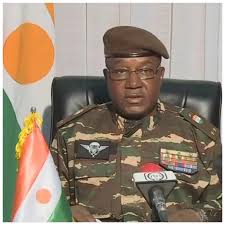
Economic consequences
From an economic perspective, there is little doubt that Sahelian countries such as Burkina Faso, Mali and Niger depend more on regional trade than coastal countries, such as Côte d’Ivoire, Ghana or Nigeria.
This is because Sahelian countries are far less urbanized and industrialized than their neighbors. They tend to produce the same agricultural commodities, which they typically trade with other countries located on the Gulf of Guinea rather than with themselves.
For instance, livestock trade between the Sahel and the Gulf of Guinea is also highly dependent on free movement between West African countries. Close to two thirds of the livestock movements recorded in West Africa through 2022 cross an international border, usually from the Sahel to big southern markets such as Abidjan.
A purely Sahelian bloc, like the recently created Alliance des États du Sahel, would never be able to replace ECOWAS, simply because of the regional nature of human and economic flows in West Africa.
Because Sahelian countries have hardly any industries, they import much of what they consume from the West African and global market, particularly from China. Much of the cement, petroleum products, cars, textiles, wheat, rice and plastics sold on the markets of Niamey, Ouagadougou and Bamako were produced elsewhere, sometimes thousands of miles from the Sahel. For that, they depend on the ports of the Gulf of Guinea.
Coastal countries are far from being self-sufficient too. They import large quantities of onion from the Sahel for example, and benefit enormously from import-export trade with the landlocked countries of the Sahel. Some of them, like Benin and Togo, have transformed into ‘entrepot economies’ which implies importing goods and re-exporting those goods.
It therefore, goes without saying that goods imported through the ports of Cotonou or Lomé are often re-exported illegally to neighboring countries, where they are banned or subject to heavy taxes.
In the past, border closures between Sahelian and coastal countries have had devastating consequences on the regional economy and the livelihoods of millions of farmers, herders and city dwellers, who depend heavily on regional trade perhaps more than anywhere in the world.
It is precisely to foster these complementary relationships between the Sahel and the Gulf that ECOWAS was established in Abuja nearly 50 years ago.
Withdrawing from ECOWAS is likely to have major consequences on the regional economy as a whole. Because of their landlocked situation, however, Sahelian countries will be more affected than the rest of the region by the reintroduction of tariff barriers. Without free access to the ports of Cotonou, Lomé, Abidjan or Tema, Sahelian imports will be far more expensive than ever.
Leaving ECOWAS will also affect Sahelian exports, like onions, fish which should become less competitive on the regional and global market like gold, uranium. Informal trade, which is already the dominant form of economic exchange on the region, will most probably experience an unprecedented boom, particularly along the borders between Niger and Nigeria.
In addition, leaving ECOWAS and its free movement protocol could have catastrophic consequences for millions of Sahelians who live in or wish to migrate to coastal cities. Migration is mostly intraregional in West Africa, which means that most Sahelians tend to migrate to the Gulf of Guinea, while most migrants from coastal countries go to Europe through the Sahara and, increasingly, to the United States.
Sahelian traders have also developed extensive trade networks across West Africa to take advantage of the liberalization of trade that has characterized the region since the 1980s. From Abidjan to Lagos, these trade networks that rely on well-established diasporas would be particularly affected by trade restrictions and immigration policies.
Political motivations
The decision to leave ECOWAS has little to do with these economic considerations, though. It is primarily motivated by the fact that ECOWAS’s approach to region-building is not confined to economic integration.
In 1999, ECOWAS adopted a Protocol relating to the Mechanism for Conflict Prevention, Management, Resolution, Peace-Keeping and Security in Lomé.
In 2001, ECOWAS adopted another Protocol on Democracy and Good Governance, which clearly adopted a zero tolerance policy “for power obtained or maintained by unconstitutional means”.
The main goal of these agreements was to promote democracy as the dominant form of governance in the region and prevent the recurrence of violence, notably through military coups.
These agreements were signed at a very important moment in the history of the region. The 1990s was the worst decade ever for the countries of the Gulf of Guinea, which were affected by a series of major military conflicts. ECOWAS and its multilateral armed force ECOMOG were mobilized in Liberia, Sierra Leone, and Guinea-Bissau, under the leadership of Nigeria.
Article 25 of the 1999 protocol authorize external interventions without state consent under certain conditions, including “in the event of the overthrow or attempted overthrow of a democratically elected government.” This, rather than trade liberalization, is the main reason why the juntas of Burkina Faso, Mali and Niger have decided to leave ECOWAS. They see as meddling on the affairs of a sovereign state. For them, it is purely an external aggression.
However, many analysts have continued to argue why the ECOWAS has decided to fold its hands and allow member states to be railroaded into political quagmire by power-hungry presidents and head of states only to roll out sanctions when such presidents or head of government are ejected out by the military.
Nigerian security analyst Jaye Gaskia said there will be implications. “The withdrawal of members of ECOWAS would have implications on ECOWAS itself in terms of its mandate and purpose for integration to ensure joint security and economic integration,” said Gaskia. “I think this is a lesson — that ECOWAS needs to have protocols and mechanisms in place to begin to respond to that situation of insecurity and instability before it leads to a point where governments are actually overthrown.
“ I ask this question — at what point is the constitution of a country actually subverted? Is it at the point where leaders become irresponsible or is it when [the] military responds to that?”
The 15-nation bloc was created in 1975 to promote economic integration among member states.
ECOWAS, however, has struggled in recent years to reverse a wave of military takeovers in the region, including Mali in 2020 and 2021, Burkina Faso in 2022 and in Niger last year.
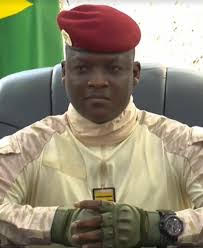
ECOWAS rules state that withdrawal from the bloc takes up to one year to be finalized.
“What ECOWAS should really learn is that the juntas are very strategic and at no point should we take these kinds of leaders for granted especially since they started this whole idea of the Alliance of Sahel States,” said Hassan. “What happens to the currency? There are a lot of buts and ifs. But it’s not also something that is as easy as the junta is making it to be.
“This withdrawal is not in the best interest of the three countries or ECOWAS because if ECOWAS is not providing the enabling environment for your security, what’s the alternative they’re looking at? And that’s where I think ECOWAS needs to become very worried,” said Gaskia. “So, who do their countries turn to for security? Russia? China?”
Since the political impasse, the three countries have drawn closer to Russia, distancing themselves from formal colonial power France.
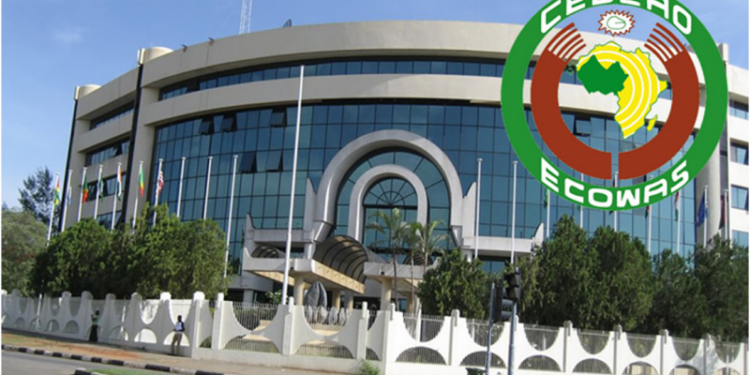
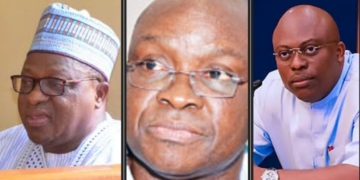


Discussion about this post